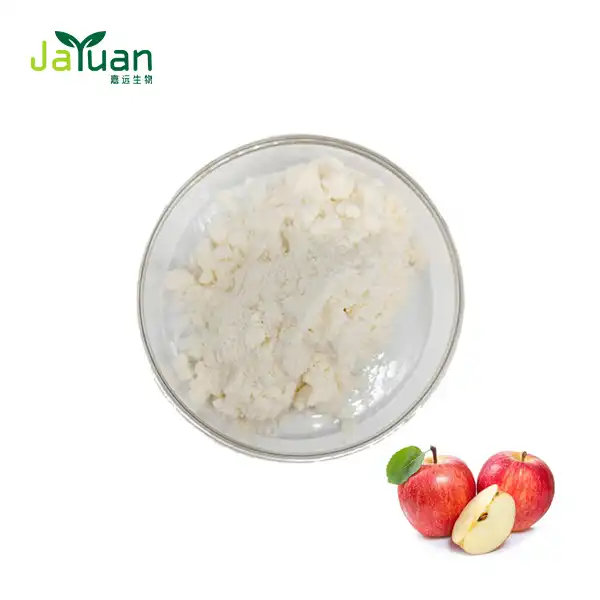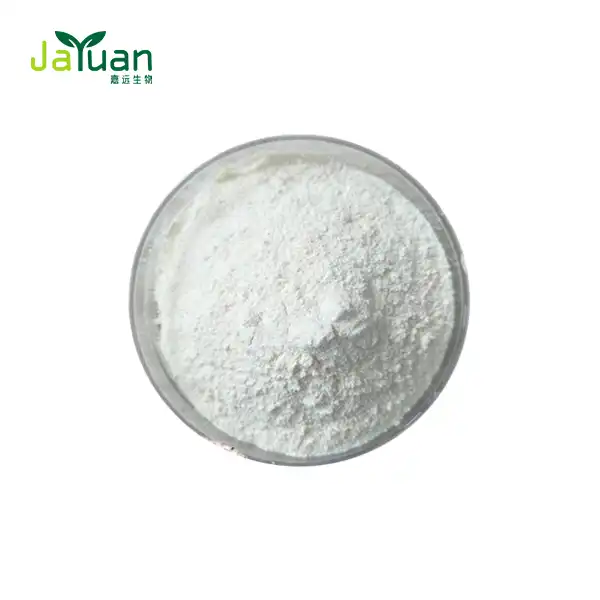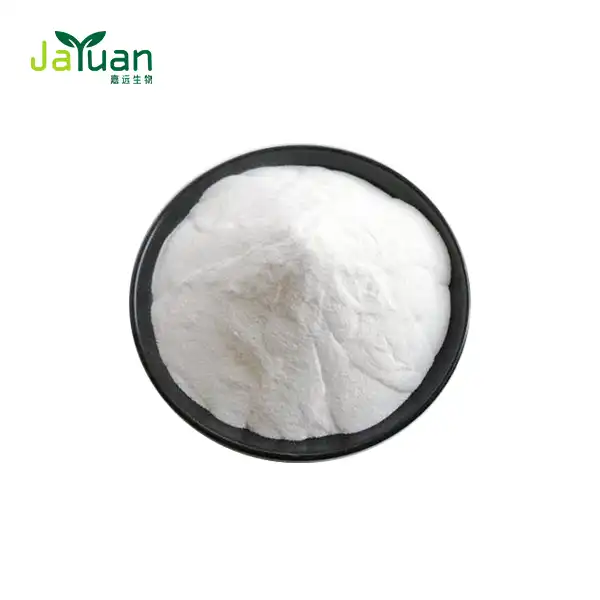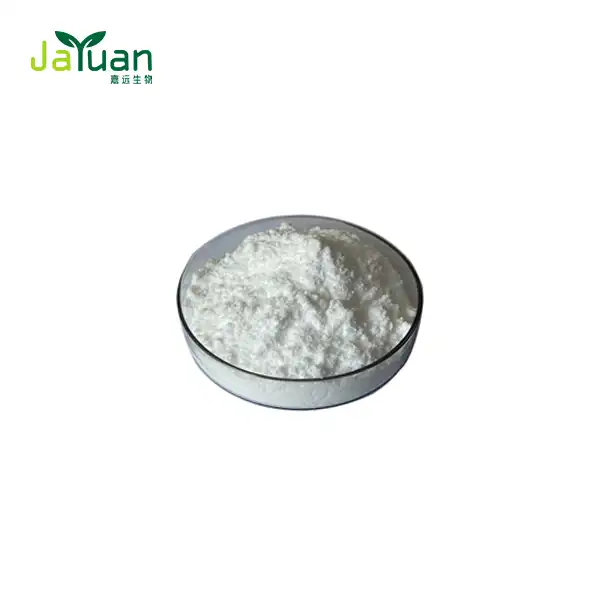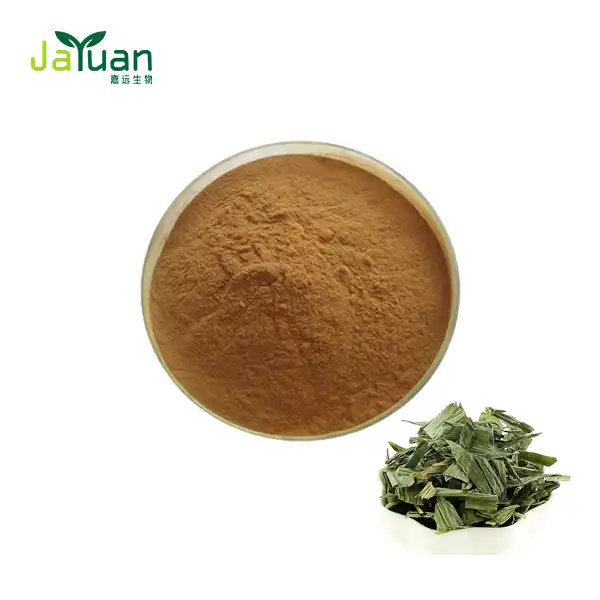Is Pine Bark Extract Powder the Ultimate Antioxidant?
Pine Bark Extract Powder has emerged as a potent contender in the realm of antioxidants. This natural supplement, derived from the bark of maritime pine trees, boasts an impressive array of health benefits. Rich in proanthocyanidins and other bioactive compounds, Pine Bark Extract Powder exhibits remarkable free radical scavenging abilities. Its antioxidant capacity surpasses many traditional options, making it a formidable ally in the fight against oxidative stress. While it may not be the singular "ultimate" antioxidant, its versatility and efficacy position it as a top-tier choice for those seeking comprehensive antioxidant support.
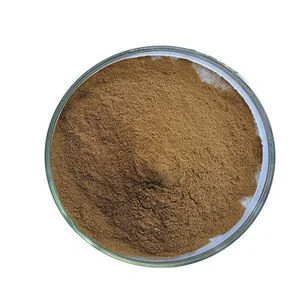
The Science Behind Pine Bark Extract's Antioxidant Properties
Understanding Pine Bark Extract's Molecular Composition
Pine Bark Extract Powder is a complex mixture of bioactive compounds, with proanthocyanidins being the star players. These polyphenolic compounds belong to the flavonoid family and are known for their potent antioxidant properties. The extract also contains other beneficial components such as catechins, taxifolin, and phenolic acids, which contribute to its overall antioxidant profile.
The unique molecular structure of proanthocyanidins allows them to interact with and neutralize various types of free radicals. These compounds can donate electrons to stabilize free radicals without becoming unstable themselves, making them highly effective antioxidants. Additionally, the diverse array of polyphenols in Pine Bark Extract provides a synergistic effect, enhancing its overall antioxidant capacity.
How Pine Bark Extract Neutralizes Free Radicals
Pine Bark Extract Powder acts as a powerful free radical scavenger through multiple mechanisms. Its proanthocyanidins can directly neutralize reactive oxygen species (ROS) and reactive nitrogen species (RNS), which are major contributors to oxidative stress. By donating electrons to these unstable molecules, Pine Bark Extract effectively prevents them from damaging cellular structures like DNA, proteins, and lipids.
Moreover, Pine Bark Extract has been shown to enhance the body's endogenous antioxidant defenses. It can increase the production and activity of antioxidant enzymes such as superoxide dismutase, catalase, and glutathione peroxidase. This dual action of direct free radical neutralization and boosting the body's own antioxidant systems makes Pine Bark Extract a comprehensive antioxidant supplement.
Research on Pine Bark Extract's Antioxidant Potency
Numerous studies have demonstrated the remarkable antioxidant potency of Pine Bark Extract Powder. In vitro studies have shown that it has a higher oxygen radical absorbance capacity (ORAC) value compared to many other antioxidants, including vitamin C and vitamin E. This indicates its superior ability to neutralize free radicals.
Clinical trials have also provided evidence of Pine Bark Extract's antioxidant effects in humans. Research published in the Journal of Agricultural and Food Chemistry found that supplementation with Pine Bark Extract significantly increased plasma antioxidant capacity and reduced oxidative stress markers in healthy individuals. These findings underscore the potential of Pine Bark Extract as a powerful antioxidant supplement for maintaining overall health and well-being.
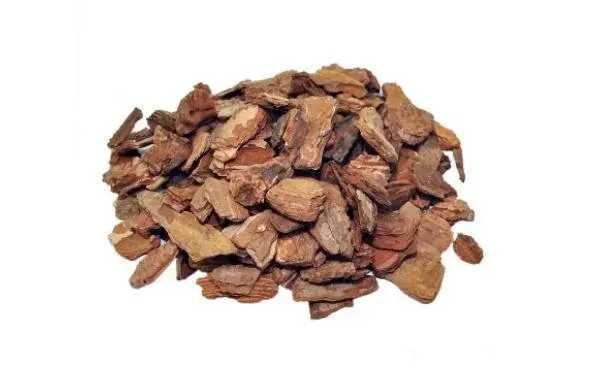
Benefits and Uses of Pine Bark Extract Powder
Pine Bark Extract for Heart Health and Circulation
Pine Bark Extract Powder has shown promising results in promoting cardiovascular health. Its antioxidant properties help protect blood vessels from oxidative damage, improving their function and elasticity. Studies have demonstrated that regular consumption of Pine Bark Extract can lead to reduced blood pressure and improved circulation.
Research published in Phytotherapy Research found that Pine Bark Extract supplementation improved endothelial function in patients with coronary artery disease. The extract's ability to enhance nitric oxide production contributes to vasodilation, promoting better blood flow throughout the body. These cardiovascular benefits make Pine Bark Extract a valuable supplement for those looking to support their heart health naturally.
Skin Health and Anti-Aging Effects of Pine Bark Extract
The antioxidant properties of Pine Bark Extract Powder extend to skin health, offering potential anti-aging benefits. The extract's proanthocyanidins help protect skin cells from free radical damage, which is a major contributor to premature aging. Pine Bark Extract has been shown to improve skin elasticity and hydration, reducing the appearance of fine lines and wrinkles.
A study published in Skin Pharmacology and Physiology found that oral supplementation with Pine Bark Extract improved skin elasticity and hydration in women. The extract's ability to stimulate collagen and hyaluronic acid production contributes to these skin-enhancing effects. Additionally, Pine Bark Extract's anti-inflammatory properties may help soothe skin conditions such as eczema and psoriasis.
Cognitive Function Improvements with Pine Bark Extract
Emerging research suggests that Pine Bark Extract Powder may have neuroprotective properties, potentially benefiting cognitive function. The extract's antioxidant and anti-inflammatory effects could help protect brain cells from oxidative stress and age-related decline. Some studies have shown improvements in memory, focus, and mental performance with Pine Bark Extract supplementation.
A randomized, double-blind, placebo-controlled study published in the Journal of Psychopharmacology found that Pine Bark Extract supplementation improved cognitive function and attention in healthy professionals. The extract's ability to enhance blood flow to the brain and reduce oxidative stress may contribute to these cognitive benefits. While more research is needed, these findings suggest that Pine Bark Extract could be a promising natural supplement for supporting brain health and cognitive performance.
Comparing Pine Bark Extract to Other Popular Antioxidants
Pine Bark Extract vs. Vitamin C: Antioxidant Power
When comparing Pine Bark Extract Powder to vitamin C, both demonstrate strong antioxidant capabilities. However, Pine Bark Extract offers some unique advantages. While vitamin C is water-soluble and primarily acts in aqueous environments, Pine Bark Extract's diverse components allow it to function in both water and lipid-based systems within the body. This versatility enables Pine Bark Extract to provide more comprehensive antioxidant protection.
Studies have shown that Pine Bark Extract has a higher ORAC value than vitamin C, indicating superior free radical scavenging ability. Additionally, Pine Bark Extract's proanthocyanidins have been found to enhance the effectiveness of vitamin C, potentially leading to synergistic antioxidant effects when the two are combined. This complementary relationship suggests that Pine Bark Extract could be a valuable addition to antioxidant regimens, rather than a replacement for traditional antioxidants like vitamin C.
How Pine Bark Extract Stacks Up Against Green Tea
Green tea is renowned for its antioxidant properties, primarily due to its high content of catechins, especially epigallocatechin gallate (EGCG). When comparing Pine Bark Extract to green tea, both exhibit potent antioxidant activity, but with different strengths. Pine Bark Extract's proanthocyanidins have been shown to have a higher antioxidant capacity than the catechins found in green tea.
Research published in Oxidative Medicine and Cellular Longevity demonstrated that Pine Bark Extract had superior free radical scavenging ability compared to green tea extract in certain in vitro assays. However, green tea offers additional benefits, such as metabolism-boosting properties. The choice between Pine Bark Extract and green tea may depend on specific health goals, and some individuals may benefit from incorporating both into their wellness routines.
Pine Bark Extract and Resveratrol: A Comparative Analysis
Resveratrol, a polyphenol found in red wine and grapes, is another popular antioxidant supplement. Both Pine Bark Extract and resveratrol offer potent antioxidant and anti-inflammatory benefits, but they differ in their molecular structures and specific effects. Pine Bark Extract's proanthocyanidins have a more complex structure, which may contribute to its broader range of biological activities.
A comparative study published in Nutrients found that while both compounds exhibited strong antioxidant properties, Pine Bark Extract showed superior effects in certain areas, such as cardiovascular health and skin protection. However, resveratrol has been more extensively studied for its potential anti-aging effects. The choice between these two antioxidants may depend on individual health priorities, and some researchers suggest that a combination of both could provide complementary benefits.
Conclusion
Pine Bark Extract Powder stands out as a formidable antioxidant with a wide range of health benefits. Its unique composition of proanthocyanidins and other bioactive compounds contributes to its potent free radical scavenging abilities. While it may not be the singular "ultimate" antioxidant, Pine Bark Extract's versatility in promoting heart health, skin vitality, and cognitive function makes it a valuable addition to any wellness regimen. As research continues to unveil its potential, Pine Bark Extract Powder remains a promising natural supplement for those seeking comprehensive antioxidant support and overall health improvement.
For high-quality Pine Bark Extract Powder, look no further than Xi'an Jiayuan Bio-Tech. Our premium-grade extract is produced using advanced extraction techniques to ensure maximum potency and purity. To learn more about our Pine Bark Extract Powder and other antioxidant supplements, contact us at sales@jayuanbio.com. Trust Xi'an Jiayuan Bio-Tech for all your antioxidant supplement needs.
References
- Rohdewald, P. (2002). A review of the French maritime pine bark extract (Pycnogenol), a herbal medication with a diverse clinical pharmacology. International Journal of Clinical Pharmacology and Therapeutics, 40(4), 158-168.
- Packer, L., Rimbach, G., & Virgili, F. (1999). Antioxidant activity and biologic properties of a procyanidin-rich extract from pine (Pinus maritima) bark, pycnogenol. Free Radical Biology and Medicine, 27(5-6), 704-724.
- Enseleit, F., Sudano, I., Périat, D., Winnik, S., Wolfrum, M., Flammer, A. J., ... & Noll, G. (2012). Effects of Pycnogenol on endothelial function in patients with stable coronary artery disease: a double-blind, randomized, placebo-controlled, cross-over study. European Heart Journal, 33(13), 1589-1597.
- Furumura, M., Sato, N., Kusaba, N., Takagaki, K., & Nakayama, J. (2012). Oral administration of French maritime pine bark extract (Flavangenol®) improves clinical symptoms in photoaged facial skin. Clinical Interventions in Aging, 7, 275-286.
- Belcaro, G., Luzzi, R., Dugall, M., Ippolito, E., & Saggino, A. (2014). Pycnogenol® improves cognitive function, attention, mental performance and specific professional skills in healthy professionals aged 35-55. Journal of Neurosurgical Sciences, 58(4), 239-248.
- Rohdewald, P. (2005). Pycnogenol®, French maritime pine bark extract. Encyclopedia of Dietary Supplements, 545-553.

